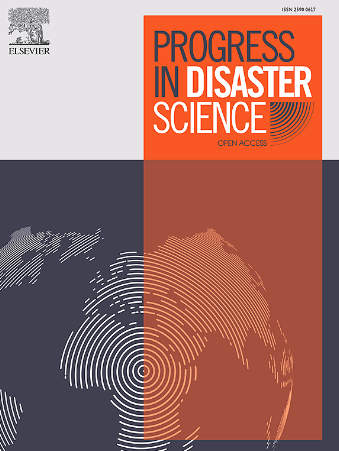干旱灾害、脆弱性、严重程度、对水部门的准备和反应:南非水治理和政策的综合模式方法
IF 3.8
Q3 ENVIRONMENTAL SCIENCES
引用次数: 0
摘要
干旱是与气候有关的严重灾害,对水资源、农业、生态系统和社区造成严重影响,造成广泛破坏。本综述深入探讨了干旱灾害的脆弱性、严重程度、准备和应对措施,重点是应对日益严重的水资源短缺的水治理和政策。这项研究利用文献和内容分析,根据同行评议的文章和水务部门的政府技术和战略文件,审查了现有的水政策框架。由于地形复杂性、有限的土地、气候变化、官僚主义障碍、被动政府方法、水法和政策框架文件的局限性以及持续的不平等,南非的水治理和政策结构面临挑战。这些研究揭示了基于生态系统的干旱适应和土著实践方面的研究差距,强调需要包容性知识的产生和改善干旱管理协调,以解决社会脆弱性问题。SWOT分析揭示了当前水资源治理政策的优势、劣势、机遇和威胁,为干旱防范和可持续发展提供了切实可行的解决方案。研究结果表明,南非的水资源短缺不仅仅是由于气候变化,还包括政治疏忽、制度因素和干旱救援计划协调不足,表明了重大的准备和响应差距。因此,本研究提出了一个管理干旱灾害和改善水资源的综合模型,以减轻水资源短缺和气候变化的影响,倡导一种促进整体和适应性方法实现可持续发展目标(sdg)的治理文化。总之,水部门变革型治理和变革型政策方法的两个推动因素是可持续和公平水资源管理的关键政策修改。本文章由计算机程序翻译,如有差异,请以英文原文为准。
Drought disasters, vulnerability, severity, preparedness and response to the water sector: A comprehensive model approach for water governance and policy in South Africa
Droughts are severe climate-related disasters that significantly impact water resources, agriculture, ecosystems, and communities, causing widespread damage. This review delves into the vulnerability, severity, preparedness, and response to drought disasters, focusing on water governance and policies in response to increasing water shortages. The study used documentary and content analysis to examine the existing water policy framework, based on peer-reviewed articles and government technical-based and strategic documents from water departments. South Africa's water governance and policy structures face challenges due to topographical complexities, limited land, climate change, bureaucratic hurdles, reactive government approaches, limitations in water law and policy framework documents, and persistent inequalities. These studies reveal research gaps in ecosystem-based drought adaptation and indigenous practices, emphasizing the need for inclusive knowledge generation and improved drought management coordination to address social vulnerability. The SWOT analysis reveals strengths, weaknesses, opportunities, and threats of current water governance policies, providing practical solutions for drought preparedness and sustainability. The findings reveal that South Africa's water scarcity is not solely due to climate change but also political negligence, institutional factors, and inadequate coordination of drought relief programs, indicating significant preparedness and response gaps. Accordingly, this study proposes a comprehensive model for managing drought disasters and improving water resources to mitigate water shortages and climate change impacts, advocating for a governance culture that promotes holistic and adaptive approaches to sustainable development goals (SDGs). In conclusion, two enablers of transformational governance and transformative policy approach in the water sector serve as key policy modifications for sustainable and equitable water resources management.
求助全文
通过发布文献求助,成功后即可免费获取论文全文。
去求助
来源期刊

Progress in Disaster Science
Social Sciences-Safety Research
CiteScore
14.60
自引率
3.20%
发文量
51
审稿时长
12 weeks
期刊介绍:
Progress in Disaster Science is a Gold Open Access journal focusing on integrating research and policy in disaster research, and publishes original research papers and invited viewpoint articles on disaster risk reduction; response; emergency management and recovery.
A key part of the Journal's Publication output will see key experts invited to assess and comment on the current trends in disaster research, as well as highlight key papers.
 求助内容:
求助内容: 应助结果提醒方式:
应助结果提醒方式:


